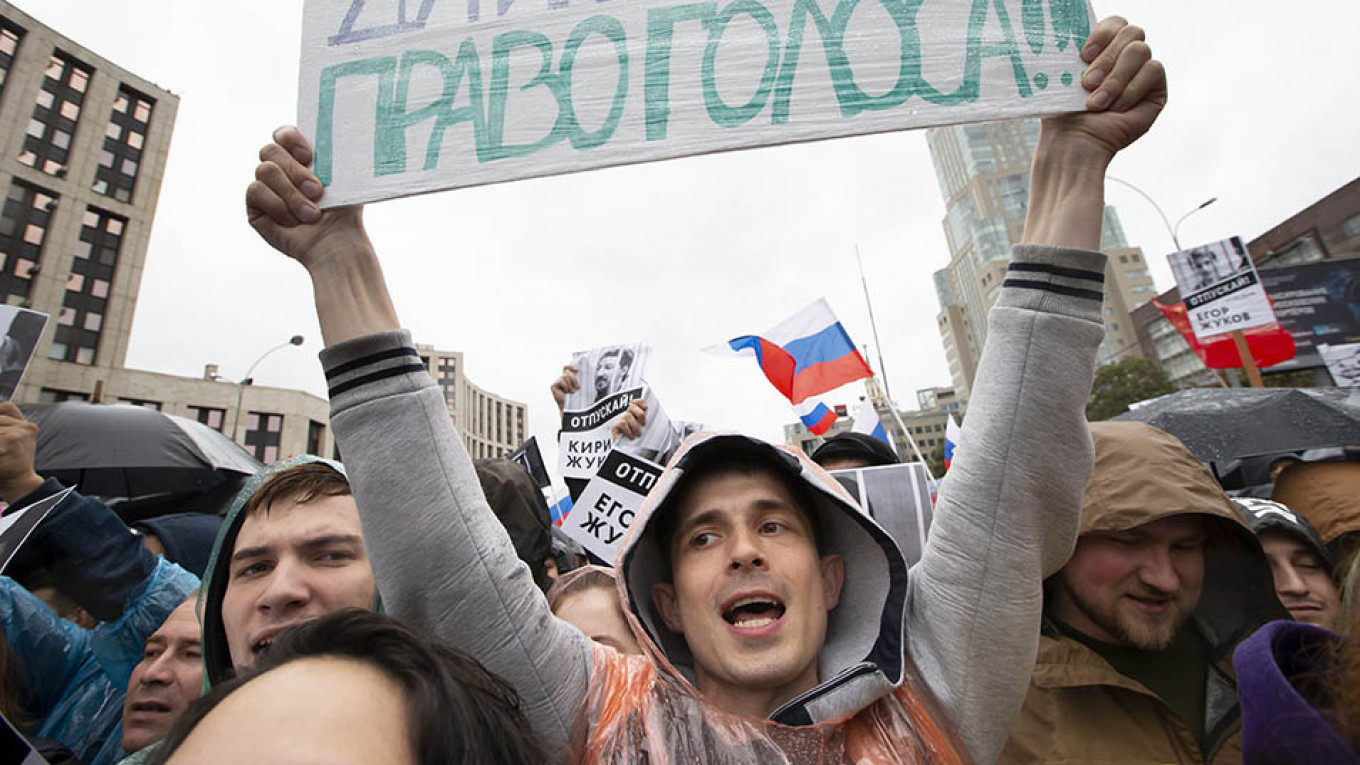
Russians are less likely to take to the streets today than they were a year ago as their living standards gradually improve, the independent Levada Center pollster has said.
The polling agency asked respondents if they think mass protests against Russians’ decline in living standards and in defense of their rights are likely to take place. The poll was conducted before President Vladimir Putin’s speech in the State Duma on Tuesday, during which he voiced support for a constitutional amendment that could see him stay in power until 2036.
Twenty-six percent of Russian respondents said mass protests are “quite possible,” according to the Levada Center’s results cited by the RBC news website Thursday. This is an 8% decrease from February 2019, when 34% of Russians said mass protests were likely.
In contrast, 70% of Russians surveyed said that mass protests are unlikely to happen, up from 63% last year.
Denis Volkov, deputy director of the Levada Center, linked the decrease in overall protest sentiment with a decrease in the severity of Russia’s social and economic problems, adding that mass anti-government protests like those seen in 2011-2012 are unlikely to happen again.
Levada sociologist Alexei Levinson also downplayed the likelihood of a surge in protests following the constitutional amendment to reset presidential terms.
“This will most likely be a diluted discontent among those who believed it was time for Putin to leave. For these people, the news that Putin is not leaving will not come as a surprise. In a sense, they were ready for this,” RBC quoted him as saying.
Hours after Putin’s speech Tuesday, Moscow banned gatherings of 5,000 or more people to try to prevent the coronavirus from spreading. Despite this, opposition activists have filed applications to stage protests in Moscow and other cities.
Levada conducted the survey among 1,614 respondents in 50 Russian regions between Feb. 20-26.
